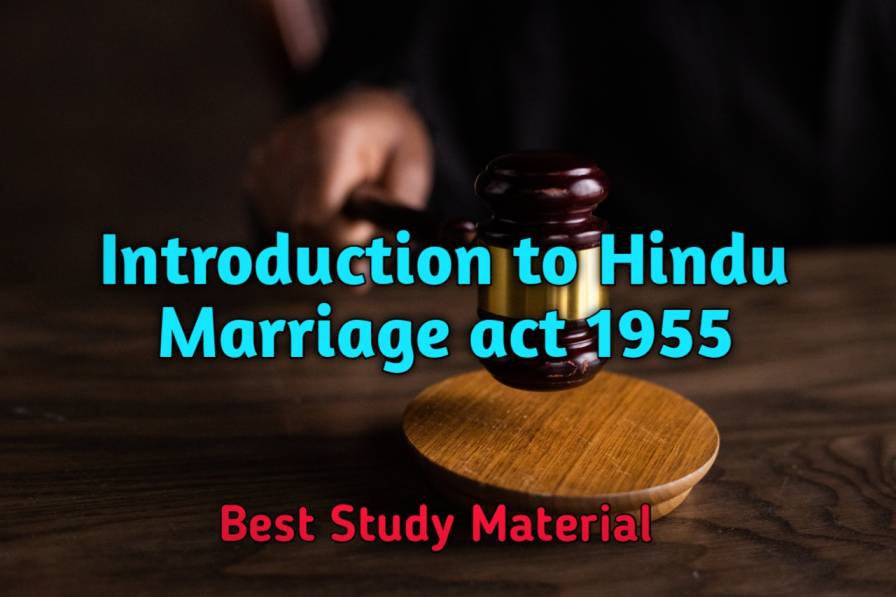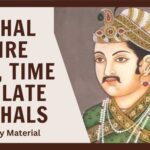Marriage among Hindus
- It is believed that there are total sixteen sacraments in Hinduism which includes marriage as one of the most important one.
- Marriage is referred as Kanyadaan in which father of the girl gifts her daughter to the boy after performing all the traditional ceremonies, rituals and rites. And woman/wife is called as Ardhangini of man.
- In Hindu culture, it is believed that it is the strongest bond between husband and wife and an unbreakable bond that remain even after death.
- A man is considered to be alone and incomplete without being married while performing Hindu rites.
Concept of Hinduism: Sacrament or Contract
Hindu marriage is a pure religious sacrament and a holy union in which a man and woman are bound in a permanent relationship which exists even after death. The characteristics of sacramental nature are: Once it is tied cannot be untied, Permanent even after death, Religious and a holy union.
Form of Marriage
Approved Form
- Brahma (To a man learned with vedas)
- Arsha (Gift from groom: cow & bull)
- Prajapatya (All social responsibilities)
- Daiva (To a priest)
Unapproved Form
- Asura (Wealth)
- Gandharva (No consent of families)
- Rakshasa (Abduct)
- Paisacha (Seduce henious)
Validity of Hindu Marriage
Section 5: This Section is essential for a valid marriage. A valid marriage shall be solemnized completely between two Hindus if the following conditions are fulfilled:
- Any person does not have a spouse living at the time of marriage (It is not permissible to have two living wives at the same time. The amount to Bigamy which is not allowed).
- The person should not be suffering from any insanity, unsoundness, mental disorder at the time of marriage (They should be capable of giving valid consent).
- The groom shall attain the age of 21 years and bride attains the age of 18 years (It is a necessary condition person should attain specified age).
- The consent shall not given by threat.
- They don’t fall under sapinda relationship or within the degree of prohibited relationship unless it is allowed by their custom or usage governing.
Void Marriage (Section 11): A marriage is considered void under Hindu Marriage Act if it does not fulfill the following conditions mentioned in section 5 of Act.
Bigamy: If any of the person have another living spouse at the time of marriage. The marriage should be considered null and absolutely void. For example – A has a spouse B but A again marries to C then it will be void and comes under Bigamy.
Prohibited Degree: If they are in a prohibited degree of relationship, it is void unless the customs or usage governing each of them permits of this marriage.
Sapindas: A marriage is void if the parties are sapindas (or within same family) unless permitted by custom governing.
Voidable Marriages (Section 12)
- A marriage considers as voidable in which either side of the party can make it invalid.
- It will not be invalid unless the petition for invalidating the Hindu marriage is filed by the couple.
- Parities have to decide to go with such marriage or make it invalid.
Grounds of a marriage to be voidable
- Impotency: If either spouse is in capable of consummating the marriage due to impotence for ex Suppose A & B gets married and after the wedding, B find that A is unable to consummate the marriage due to impotency. B has the option to make the marriage voidable.
- Unsoundness: If the marriage is in contravention which says either of the parties is suffering from mental disorder, sanity or unsoundness of mind, then the marriage is voidable.
- Consent: The consent of marriage by either of the parties is done by force or by fraud, the marriage is voidable.
- Pregnancy: If the woman is pregnant with a child of someone other than the bride groom at the time of marriage.
Necessary condition under section 12
- A petition can be filed within one year of discovery of fraud or application of force.
- No sexual relationship is establish after knowing about pregnancy of woman.
Matrimonial Relief: Concept and Grounds
It refers to legal remedies available to individual facing issues within their marriage. The remedies are designed to address and resolve issues that may threaten the stability of their marriage. Under the HMA, 1955, matrimonial relief can include actions like Restitution of Conjugal Rights, Judicial Separation and Divorce.
Grounds
- Adultery (Extra marital voluntary sexual intercourse)
- Cruelty (Mental and Physical)
- Desertion (Act of forsaking or abandoning)
- Unsoundness of mind (Mental Disorder)
- Leprosy
- Venereal Disease (STD)
- Presumption of world
- Bigamy
Restitution of Conjugal Rights
Restitution of Conjugal Rights means Restoration of martial obligation. Either husband or wife has without any reasonable excuse withdrawn form the society of the, the aggrieved party may approach the court for Restoration. The conjugal rights are duty to cohabit and duty to company each other.
Essential of Conjugal Rights
- Person has withdrawn from the society of the petitioner.
- That withdrawal is without any reasonable cause.
- Court is satisfied that statement made by petitioner are true.
- There is no legal ground for refusing grant of application.
Section 9 (Restitution of Conjugal Right)
- Withdrawn form society of other when either party has refuse to perform his/her marital obligation.
- Their is element of Desertion: Actual (Physical desertion) and Constructive (Physical presence is there and mental absence of mind).
- Without any reasonable cause Question of fact, Presence of Ground and Burden of Proof (Presence of reasonable cause lies on respondent).
Sushila Bai Vs Prem Narayan Rai (1985)
Court held and allowed the decree of restitution of conjugal rights. The husband has left his wife in his father-in-law’s home and afterwards didn’t maintain any relationship or connection with her. That is withdrawing from the society of wife and without any reasonable cause.
Saroj Rani vs Sudarshan Kumar Chandra (1984)
In this Case, Supreme court finally resolve the tussle between section 9 and fundamental rights. The object of section 9 was only to offer an inducement for the spouse to live together and it does not force an unwilling wife to engage in sexual relationship. The remedy of restitution only aims to protect the institution of marriage.
Effect of Non Compliance of Decree of Restitution
If no resumption of cohabitation even after 1 years then it will ground to divorce under section 13 (1A).
Read More: Overview of Hindu Law: Backgrounds and Schools of Hindu Law







1 thought on “Introduction to Hindu Marriage act 1955 unit 2 BALLB Simplified Notes”